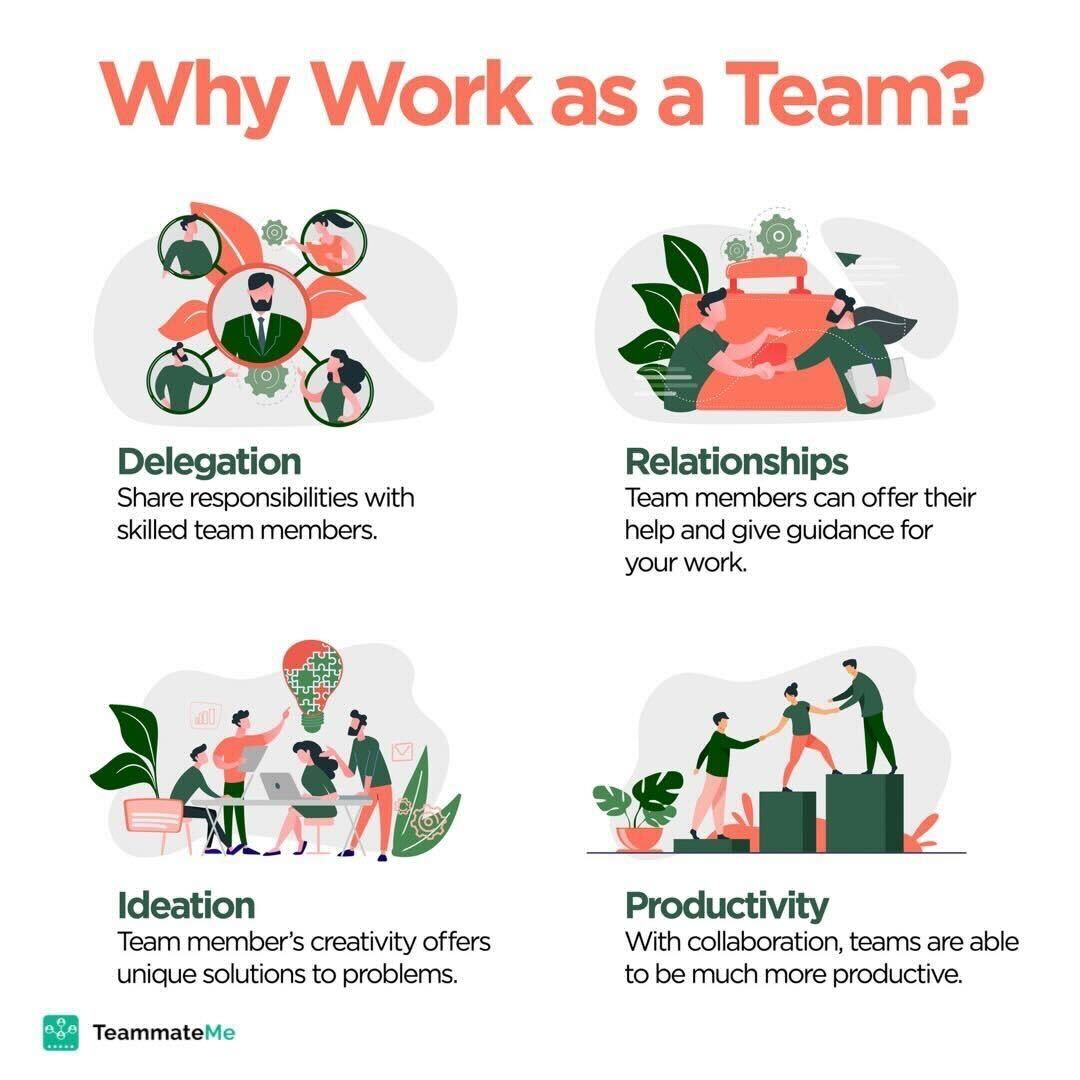Working with a team of people can be emotionally draining, especially if you’re no social butterfly. However, one can’t deny that it has its perks. From minimizing your workload to making sure you stay motivated and productive, working in a team is helpful when you’re dealing with complex and large projects.
Project requirements can be challenging, demanding, and overwhelming. And if you’re given a short deadline, then the odds are stacked against you. That’s when a team has your back (Project Central), whether you are a student trying to meet unrealistic project deadlines while juggling classes and other assignments or a corporate professional tasked with a daunting project. Having a supportive team allows you to reach out to classmates and colleagues for help in completing projects efficiently and effectively. .
In the words of Michael Jordan - “Talent wins games, but teamwork and intelligence win championships.” This holds true not just in sports but in all aspects of life. ‘
That said, team dynamics are crucial to a team’s success, and it’s, therefore, important to have great teammates. After all, it can be hard to convince someone who isn’t a team player(HBR) to do their part. While we’re sure you know every drawback there is when it comes to working with a team, let’s focus on why you should work as one.
1. Delegation
Just because you think you're a jack of all trades does not mean you should be handling every aspect of your project. Even a well-oiled machine has many cogs and gears working together, so everything runs smoothly. Delegating tasks effectively “helps speed up the workflow and empowers every team member,” (Corporate Finance Institute) giving them a chance to develop their own skills.
This way, one person isn't stuck trying to do everything at once. Or worse, doing something they’re not good at. For example, if you were to try and do everything from marketing to customer support, you'll quickly find that you've wasted most of your time on measly tasks; or spent way too long on something that a teammate competent in that area could have completed in less time.
As Brian McHale once said, "Building a strong, diverse team equipped with an array of strengths leads to increased efficiency & productivity."
2. Ideation

"Two heads are better than one. Not because either is infallible, but because they are unlikely to go wrong in the same direction" (C.J. Lewis). In the process of completing any project, there are many opportunities to brainstorm with your colleagues.
From solving day-to-day problems to figuring out ways you can improve your current strategy, having multiple heads and ears is always helpful. When you cultivate a team culture that embraces ideation, creativity, autonomy, and thoughtful problem solving, you’re able to encourage your teammates to pitch in and do their best.
“Some of the attributes that correlate with creativity are also attributes that facilitate teamwork,” says Steve Berczuk. According to him, collaboration is key to how agile teams work. In other words, teamwork and creativity go hand in hand (Techwell).
Creating a strong team culture and encouraging team members to share their ideas can lead to great accomplishments. An example you may find more relatable is movie production, where multiple professionals come together to ensure the completion of a movie. To sum it up, teamwork is what got the Avengers kicking ass all the way to the bank.
From the perspective of the director to the cinematographic, editing, acting, and screenwriting expertise of everyone else on set, the movie wouldn’t have become a guaranteed success with only one person behind it.
3. Relationships
Once you’ve accomplished a challenging project and developed a strong relationship with your teammates, you feel motivated to pursue other challenges with the same set of people. Think about it this way, when you enjoy working with the people on your team, you’re more inclined to show up and do your best since you don’t want to let them down.
Through the hours spent brainstorming and working together, you build trust and relationships, which in turn encourage team synergy. With a supportive team to lean on, an otherwise overwhelming project will seem less daunting. The support and encouragement of teammates drive success allowing groups to accomplish their goals, meet setbacks head on, and sustain long-term success. (HBR)
A supportive team can accomplish any project it puts its mind to because the more supportive each member on the team is of one another, the more strength there is available for everyone to draw upon. And the icing on the cake - you never have to take all the blame yourself!
4. Productivity
Working with a team means you have a more hands-on deck approach. There are only so many hours in a day that you can spend in front of your desk or computer working before you burn out (Midwestern) and lose all the progress you’ve made.
With the help of team members, you’re able to meet project deadlines more quickly, and you’re also shedding a load of stress from your shoulders. For example, when working under strict deadlines, you won’t have to worry about getting overwhelmed with several tasks that need to get done in a short amount of time.
This way, everyone is given a reasonable load which can improve productivity. Not only that, working with the right team members can help you meet goals such as “higher profitability, higher customer satisfaction, higher sales.” (Gallup)
Furthermore, working with team members also gives individual members a sense of responsibility. When working with others, they’re made more aware of the progressive work chain. Thus, they are more inclined to complete tasks more quickly and efficiently to keep the workflow running.
The Takeaway
Nothing can sum up the importance of teamwork than this quote by Helen Keller - “Alone we can do so little, together we can do so much.” The Science of Teamwork, an issue by the journal American Psychologist, is dedicated to the psychology of collaboration. It is packed with evidence to prove that working in teams makes people smarter, more creative, and more successful. In other words, teamwork unleashes a torrent of energy that boosts creativity, commitment, and communication that drives productivity, efficiency, and trust - the cornerstones of success.
